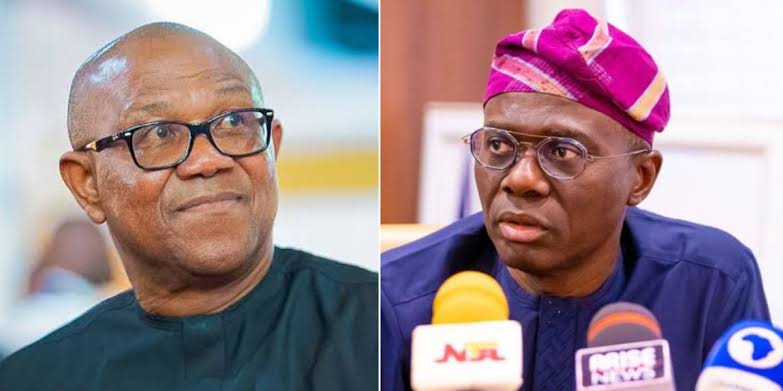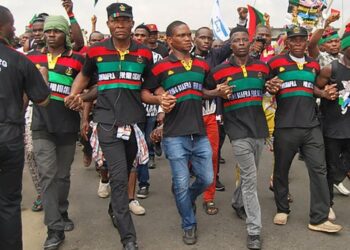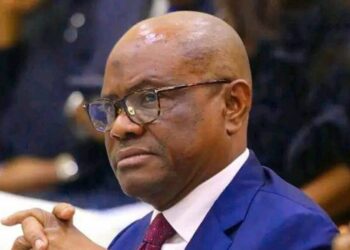The Labour Party’s 2023 presidential candidate, Peter Obi, has responded to criticism from Lagos State Governor, Babajide Sanwo-Olu, and others who accused him of demarketing Nigeria. Obi maintained that he was simply telling the truth about the country’s dire situation.
Speaking recently at Johns Hopkins University in the United States, Obi highlighted Nigeria’s economic decline over the last 25 years, blaming poor leadership for the deepening poverty crisis. He noted that Nigeria now has more poor people than China, Indonesia, and Vietnam combined.
Obi’s remarks sparked backlash from Governor Sanwo-Olu, who described them as “unflattering” and accused Obi of failing to portray Nigeria positively on the global stage.
“When prominent Nigerians go overseas, they ought to project Nigeria positively,” Sanwo-Olu said. “They don’t have to do it for the government, but we all owe a duty to market Nigeria, not demarket her. That’s what true patriotism is about.”
However, Obi stood his ground during a speech at the memorial lecture for elder statesman Pa Edwin Clark in Abuja. He insisted that stating facts about Nigeria’s economic hardship is not equivalent to demarketing the country.
“I spoke a few days ago, and people said I’m demarketing Nigeria. When is telling the truth demarketing?” Obi asked. “The World Bank just reported that 75% of Nigerians in rural areas are poor. Is the World Bank demarketing Nigeria? UNICEF said Nigeria has over two million malnourished children, the second highest in the world. Are they demarketing Nigeria?”
“Labour of Our Heroes in Vain”
Obi also questioned the silence of civil society groups and individuals who once criticized former President Goodluck Jonathan’s administration. He pointed out that conditions in Nigeria today are much worse.
“We were in this country when people protested against Jonathan for increasing fuel from N87 to N120. Where are those protesters now, when fuel prices and the exchange rate have skyrocketed? Are they dead?” he asked.
Obi argued that the sacrifices of Nigeria’s founding heroes risk being in vain if citizens fail to speak up in the face of worsening governance and economic hardship.












